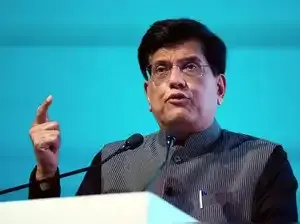More student loan borrowers enrolled in plans that had been temporarily blocked from federal loan cancellation may soon be able to receive that relief, while also ensuring they'll avoid potentially painful tax bills.
The developments are the result of an agreement reached Friday between the Education Department and the American Federation of Teachers, which last month urged the courts to force the department to process loan discharges for eligible borrowers.
Borrowers in income-driven repayment programs, known as IDR plans, make monthly payments that are tied to their income levels and household size, generally for 20 to 25 years -- after that, any remaining debt is forgiven.
But loan cancellation in several of these IDR plans had been temporarily paused this year because of the Trump administration's interpretation of a court order. That sprang from Republican-led legal challenges filed last year against the most generous IDR plan, known as SAVE, which the Biden administration introduced in 2023.
(Join our ETNRI WhatsApp channel for all the latest updates)
Halting the loan cancellations had the potential to cost borrowers dearly: A temporary tax break that makes canceled student debt exempt from federal taxes expires at the end of this year (it's usually taxed as income).
"With today's filing, borrowers can rest a little easier knowing that they won't be unjustly hit with a tax bill once their student loans are finally canceled, pursuant to federal law," said Winston Berkman-Breen, the legal director at Protect Borrowers, an advocacy group that also represented the American Federation of Teachers and individual borrower plaintiffs.
The agreement makes clear that borrowers in income-driven repayment plans who have made enough qualifying payments in 2025 will not be subject to those taxes, regardless of which IDR plan they are in or when the cancellation is processed, according to a joint status report filed in U.S. District Court for the District of Columbia. The agreement is subject to the court's approval.
The Education Department agreed to continue to process loan discharges for eligible borrowers in the Income-Contingent Repayment (ICR) and Pay As You Earn (PAYE) plans -- as long as they're still in effect. (The giant reconciliation bill passed last summer dismantles the two programs in 2028.)
The Trump administration recently resumed loan cancellation for eligible borrowers in the Income-Based Repayment program (known as IBR), which had also been halted, but for different reasons.
"That means so long as you're not in the SAVE Plan, you shouldn't need to change plans to get your loans forgiven," Stanley Tate, a consumer lawyer who focuses on student loans, said in a newsletter reacting to the news.
"This is a huge win," he added.
It was not immediately clear how many borrowers may be eligible for discharges or when they may receive relief. It's also likely that any effort could be slowed by the government shutdown.
A spokesperson for the Education Department said that it was again able to process loan cancellations for borrowers who had made payments for the requisite number of years, and that "it looks forward to continuing its work to simplify the student loan repayment process through implementation of the president's One Big Beautiful Bill Act."
The agreement also provided other assurances. Borrowers who have already made enough payments to have their remaining debt wiped away -- but who continued to make payments after they crossed that threshold -- will be reimbursed.
It also said applications for "buy backs" would continue to be processed -- this allows borrowers in the Public Service Loan Forgiveness program to submit payments for months spent in forbearance, making them eligible for loan cancellation.
The agreement also clarified that all borrowers will be permitted to enroll in the Income-Based Repayment program, even if they do not qualify for a "partial financial hardship." Some borrowers had been denied entry into that program this year, advocates said, because they did not meet that hurdle.
This article originally appeared in The New York Times.
The developments are the result of an agreement reached Friday between the Education Department and the American Federation of Teachers, which last month urged the courts to force the department to process loan discharges for eligible borrowers.
Borrowers in income-driven repayment programs, known as IDR plans, make monthly payments that are tied to their income levels and household size, generally for 20 to 25 years -- after that, any remaining debt is forgiven.
But loan cancellation in several of these IDR plans had been temporarily paused this year because of the Trump administration's interpretation of a court order. That sprang from Republican-led legal challenges filed last year against the most generous IDR plan, known as SAVE, which the Biden administration introduced in 2023.
(Join our ETNRI WhatsApp channel for all the latest updates)
Halting the loan cancellations had the potential to cost borrowers dearly: A temporary tax break that makes canceled student debt exempt from federal taxes expires at the end of this year (it's usually taxed as income).
"With today's filing, borrowers can rest a little easier knowing that they won't be unjustly hit with a tax bill once their student loans are finally canceled, pursuant to federal law," said Winston Berkman-Breen, the legal director at Protect Borrowers, an advocacy group that also represented the American Federation of Teachers and individual borrower plaintiffs.
The agreement makes clear that borrowers in income-driven repayment plans who have made enough qualifying payments in 2025 will not be subject to those taxes, regardless of which IDR plan they are in or when the cancellation is processed, according to a joint status report filed in U.S. District Court for the District of Columbia. The agreement is subject to the court's approval.
The Education Department agreed to continue to process loan discharges for eligible borrowers in the Income-Contingent Repayment (ICR) and Pay As You Earn (PAYE) plans -- as long as they're still in effect. (The giant reconciliation bill passed last summer dismantles the two programs in 2028.)
The Trump administration recently resumed loan cancellation for eligible borrowers in the Income-Based Repayment program (known as IBR), which had also been halted, but for different reasons.
"That means so long as you're not in the SAVE Plan, you shouldn't need to change plans to get your loans forgiven," Stanley Tate, a consumer lawyer who focuses on student loans, said in a newsletter reacting to the news.
"This is a huge win," he added.
It was not immediately clear how many borrowers may be eligible for discharges or when they may receive relief. It's also likely that any effort could be slowed by the government shutdown.
A spokesperson for the Education Department said that it was again able to process loan cancellations for borrowers who had made payments for the requisite number of years, and that "it looks forward to continuing its work to simplify the student loan repayment process through implementation of the president's One Big Beautiful Bill Act."
The agreement also provided other assurances. Borrowers who have already made enough payments to have their remaining debt wiped away -- but who continued to make payments after they crossed that threshold -- will be reimbursed.
It also said applications for "buy backs" would continue to be processed -- this allows borrowers in the Public Service Loan Forgiveness program to submit payments for months spent in forbearance, making them eligible for loan cancellation.
The agreement also clarified that all borrowers will be permitted to enroll in the Income-Based Repayment program, even if they do not qualify for a "partial financial hardship." Some borrowers had been denied entry into that program this year, advocates said, because they did not meet that hurdle.
This article originally appeared in The New York Times.








